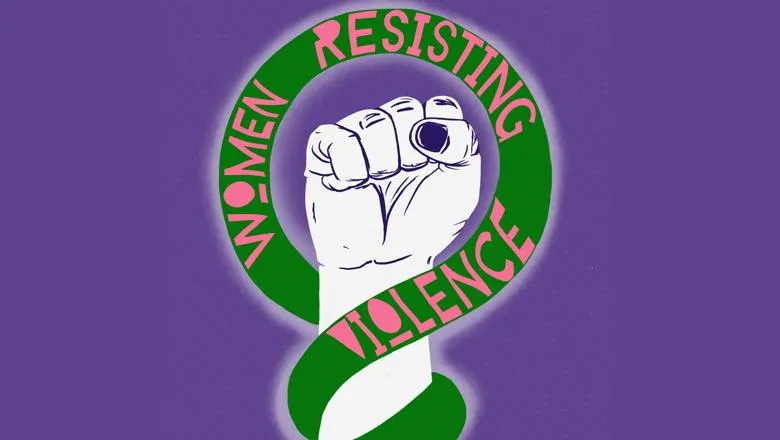Due to the high incidence of gendered violence in Latin America, progressive research and legislative changes have occurred throughout the region where the UK is falling behind. For instance, eight countries in Latin America currently classify femicide as such (of which 13 have holistic legislation that includes measures of prevention, protection, investigation and reparation as enshrined in law). However, in the UK where there is no such crime defined, a woman is killed by a man once every three days.
Professors Cathy McIlwaine, researcher on the project
25 November 2021
Women Resisting Violence – King's launches new podcast series
King’s academics, in collaboration with the Latin America Bureau, launch a new three-part podcast series which hears the extraordinary experiences of women addressing and resisting gender-based violence in Brazil, Guatemala and the UK.

Latin America has one of the highest rates of violence against women and femicide in the world. This incidence has increased during the Covid-19 pandemic, with governments and civil society recognising the urgency of addressing the phenomenon. While there is much research on the nature and causes of such violence, there is little exploration of the projects that are working to end it.
In response to this, Professors Cathy McIlwaine and Jelke Boesten, in collaboration with a team at the Latin America Bureau, have launched a new three-part podcast series which hears from the grassroots campaigns and organisations that counter violence against women and girls in Guatemala, Brazil and the UK. Created by producer, Louise Morris, the episodes each explore the complex nature of resistance through listening to local women survivors and civil activists’ stories of social change.
The podcast aims to champion these grassroots campaigns to better understand the complex and innovative nature of their resistance, whilst learning from the lived experience of women survivors and civil society activists. These important learnings should positively influence broader policies around violence against women, both within and beyond Latin America.
The podcast also aims to highlight the lack of support migrant women face in the UK when seeking help for domestic abuse and how UK law is falling behind Latin America when it comes to protecting women against violence, especially given its failure to make femicide a crime.
Episode 1: Mourning the 56 in Guatemala
"The government wants to erase our children's memory and I can't allow it as a mother looking for justice."
On 8 March 2017, 56 girls were locked in a classroom of their state-runchildren’s home just outside Guatemala City when a fire broke out, only 15survived. Four years later no one has been sentenced for these crimes. Thisepisode focuses on the enduring work of Ocho Tijax, a women’s group caringfor the girls’ families and the survivors as well as fighting their case in thecourts. We also hear from Vianney, the mother of Ashly Angelie RodríguezHernández, who lost her life in the fire.
Episode 2: Rio’s trailblazing Women’s House
"If Black women in Brazil are the ones who suffer the most from gender-based violence, it is these women that have to be there drawing up public policy."
Located in one of the largest favelas in Brazil, in Rio de Janeiro, and founded by Eliana Sousa Silva and her colleagues from the Redes da Maré, the Casa Das Mulheres provides much needed education around gender violence, and support for those leaving abusive relationships, in an area where the police refuse to intervene. It’s been a lifeline for many during Covid-19, when many favela residents lost their jobs, providing work and distributing food to starving families as well as dealing with a huge rise in domestic violence.
Episode 3: Step Up Migrant Women
"If you don't have the right to request emergency help from public services, how are you going to survive?"
Gil migrated to the UK from Brazil with her partner and two children as atourist, and subsequently became undocumented. When she fled abuse, shewas met with hostility by UK police and ended up homeless with a child.Finding the Latin American Women’s Rights Service (LAWRS) changed herlife and Gil now works on the group's Step Up Migrant Women Campaign tohighlight the vulnerability of migrant women with insecure immigrationstatus in situations of domestic abuse. LAWRS also works with Migrants inAction (MinA), a community theatre group dedicated to Brazilian women inLondon who have experienced gender violence. Through theatre, they createa safe space for women to share stories, identify violence and heal.
Behind every victory we have, there is a fight led by women who make it happen.
Eliana Sousa Silva, Redes da Maré, Brazil
LIsten now
The podcast is available in English, Spanish and Portuguese. Head to your preferred podcast provider and search 'Women Resisting Violence'.


